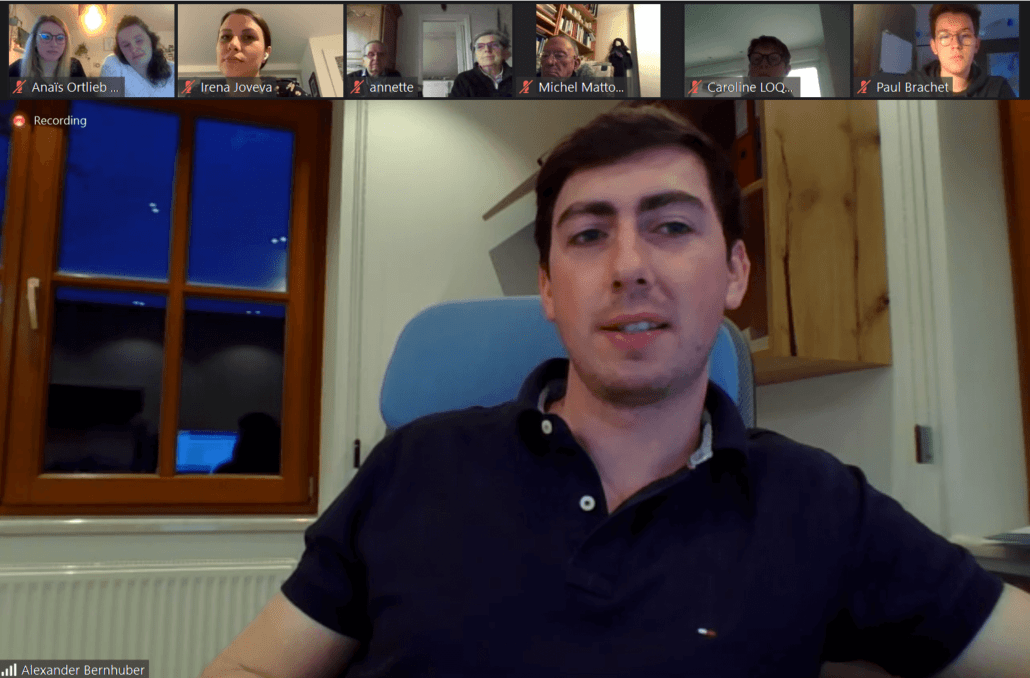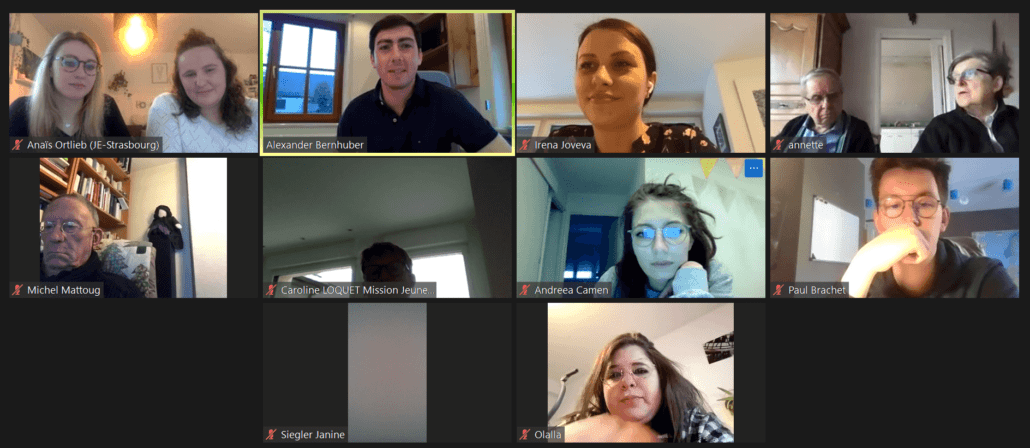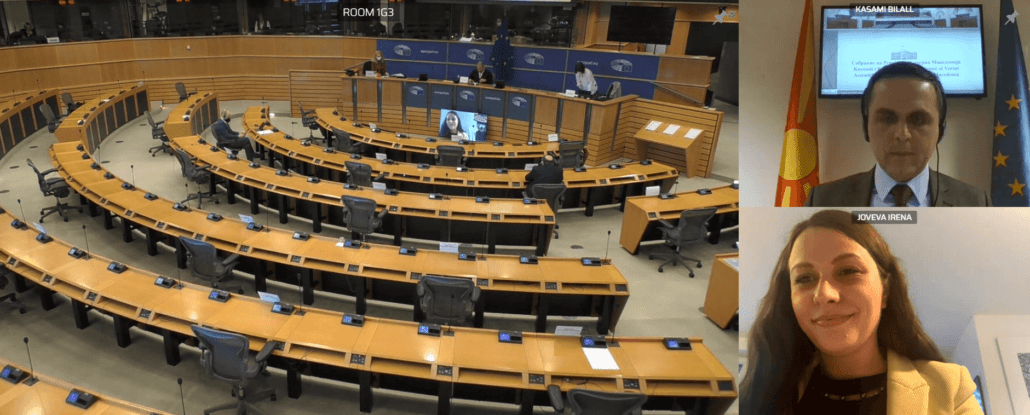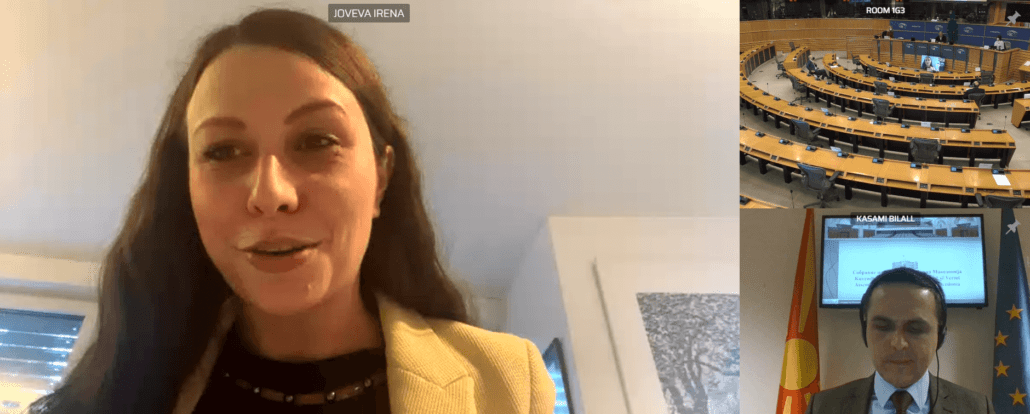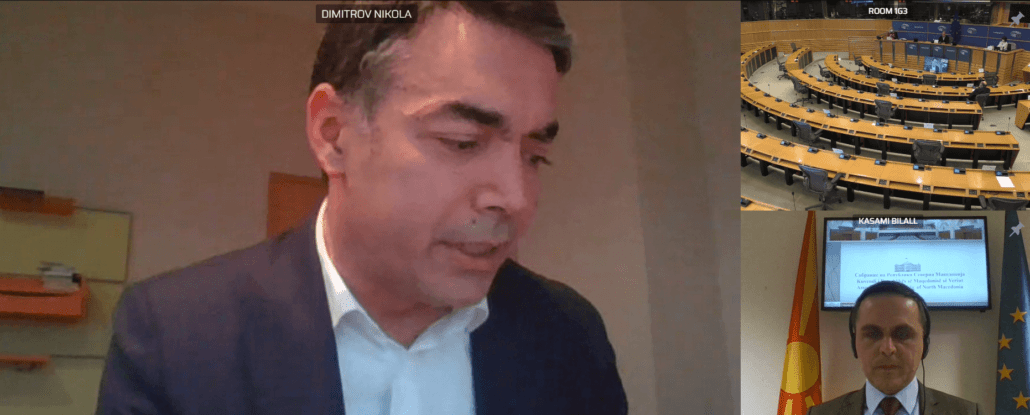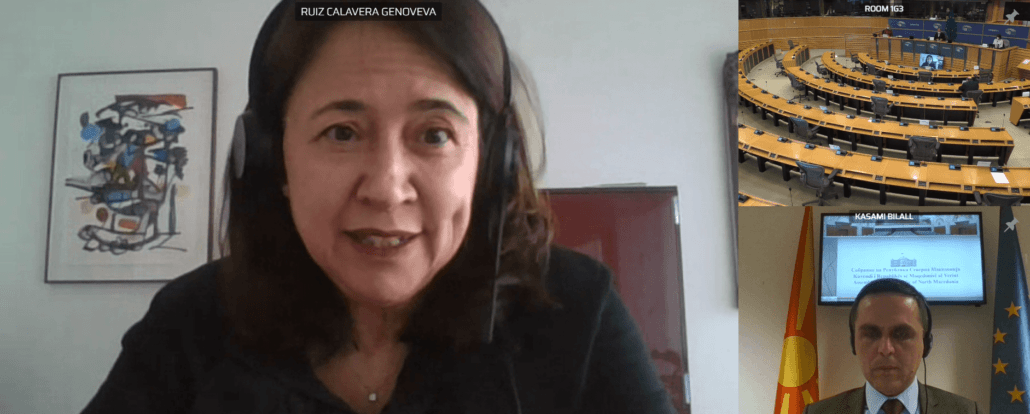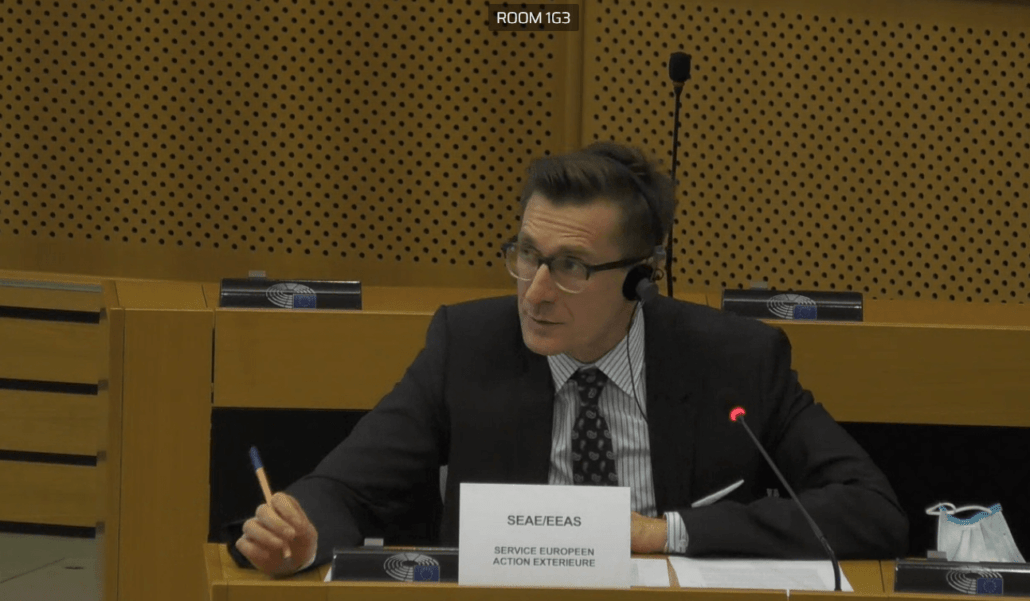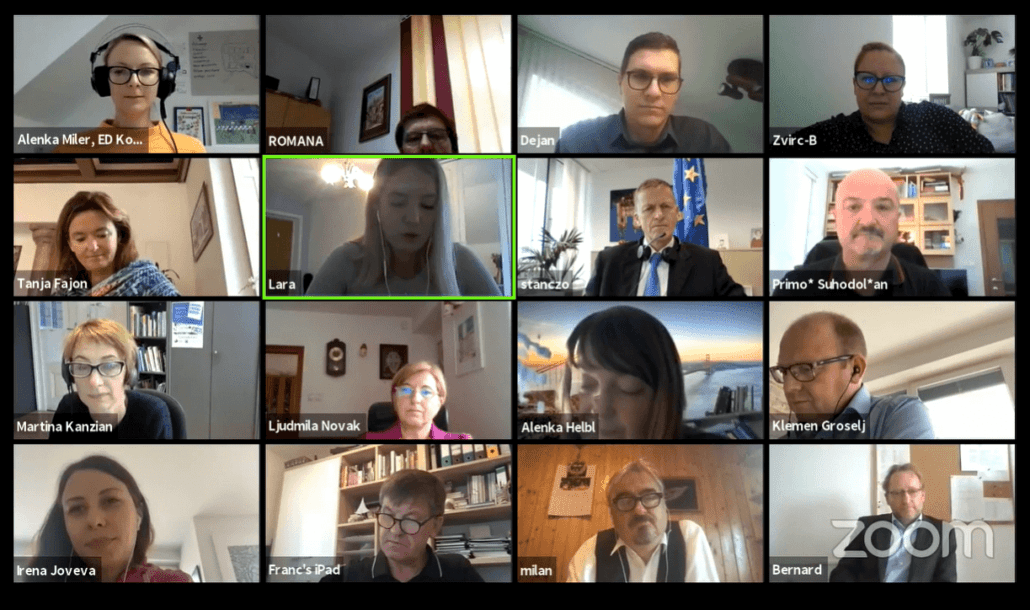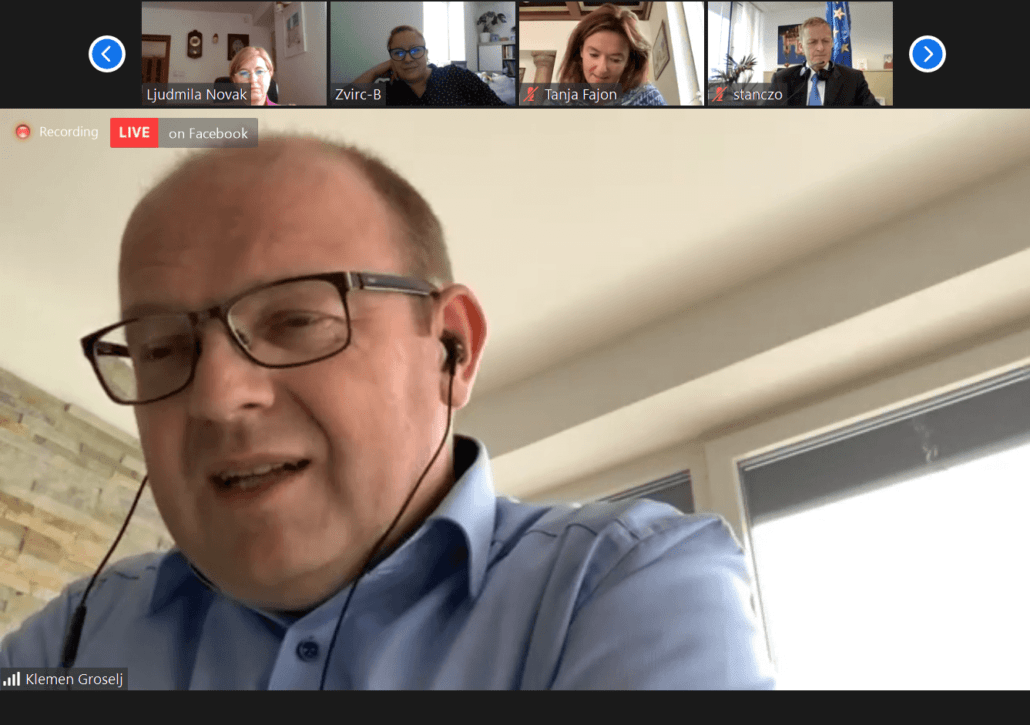On Wednesday, 7 April 2021, MEP Irena Joveva participated in the online debate “The Pandemic, Youth, and Europe: how to prevent a lost generation?” organized by the European Parliamentary Association. In their discussion, young Europeans focused on preventing long-term mass youth unemployment and filling the skills gap that will result from the disruption of the traditional learning process.
The pandemic is reducing young people’s opportunities for education and employment. Increasingly, we hear that the ‘lock down’ generation is the lost generation. MEP Joveva agreed with the young people that it is really hard to be 20 years old at this time. “It must be a challenge to be isolated with no real social contact and getting their education through distance learning.” She began by pointing out that education is a Member State competence, meaning that countries have faced the challenges of the pandemic differently. But this does not mean that nothing is being done at the European level.
“At the beginning of the epidemic, in the so-called first wave, when we didn’t know much about the virus, the only right thing to do was to close educational institutions. No one knew how long it would last, for how long the distance learning would be needed, or what the effects of this kind of teaching would be. Today we witness that European education systems have many shortcomings.” Joveva agreed that the pandemic has also led to a lack of social skills development and increased psychological consequences and inequalities. “Since before the pandemic we in Parliament have been working on promoting IT skills, STEM education (science, technology, engineering, and maths), volunteering, internships, exchange programmes … Erasmus+ and the European Solidarity Corps are excellent examples of how we are trying to bridge the gap between traditional schooling by teaching international competences, encouraging practical work, and opening up new horizons.”
Joveva also emphasized that digital education is crucial as it represents an investment in the future and the development of individuals and society. In October, the Commission, which has been working on education reform and Union-level guidelines since before the pandemic, presented its Digital Education Action Plan. It is in the common interest of all EU Member States to fully exploit the potential of education as a driving force for job creation, economic growth and the transition to the digital economy, and for greater social cohesion, especially in the light of the ongoing crisis we are facing momentarily.
Participants agreed that during the pandemic we all became (even more) aware of the importance of volunteering. Joveva, who was shadow rapporteur for the European Solidarity Corps, said that Parliament was working to further improve volunteering opportunities. The new European Solidarity Corps programme will be more accessible, more inclusive, and will provide more safety and security for participants, additionally, online volunteering was also highlighted.
“National agencies can invoke force majeure clauses. This will allow them to assess the possibility of accepting additional costs up to the maximum grant amount. It also allows them to postpone planned activities for up to 12 months per project. The Commission has also secured €100 million for the Digital Education Call for Schools, which will support projects in school education, vocational education, and higher education. The aim of this call will be to improve online, distance, and blended learning – including support for teachers and tutors.”
Despite the complexity of the topics discussed, the young people concluded the debate with optimism, and were especially pleased to have had the opportunity to share their experiences and reflections with the two MEPs. In addition to Joveva the young MEP Alexander Bernhuber (EPP) from Austria also took part in the discussion.

